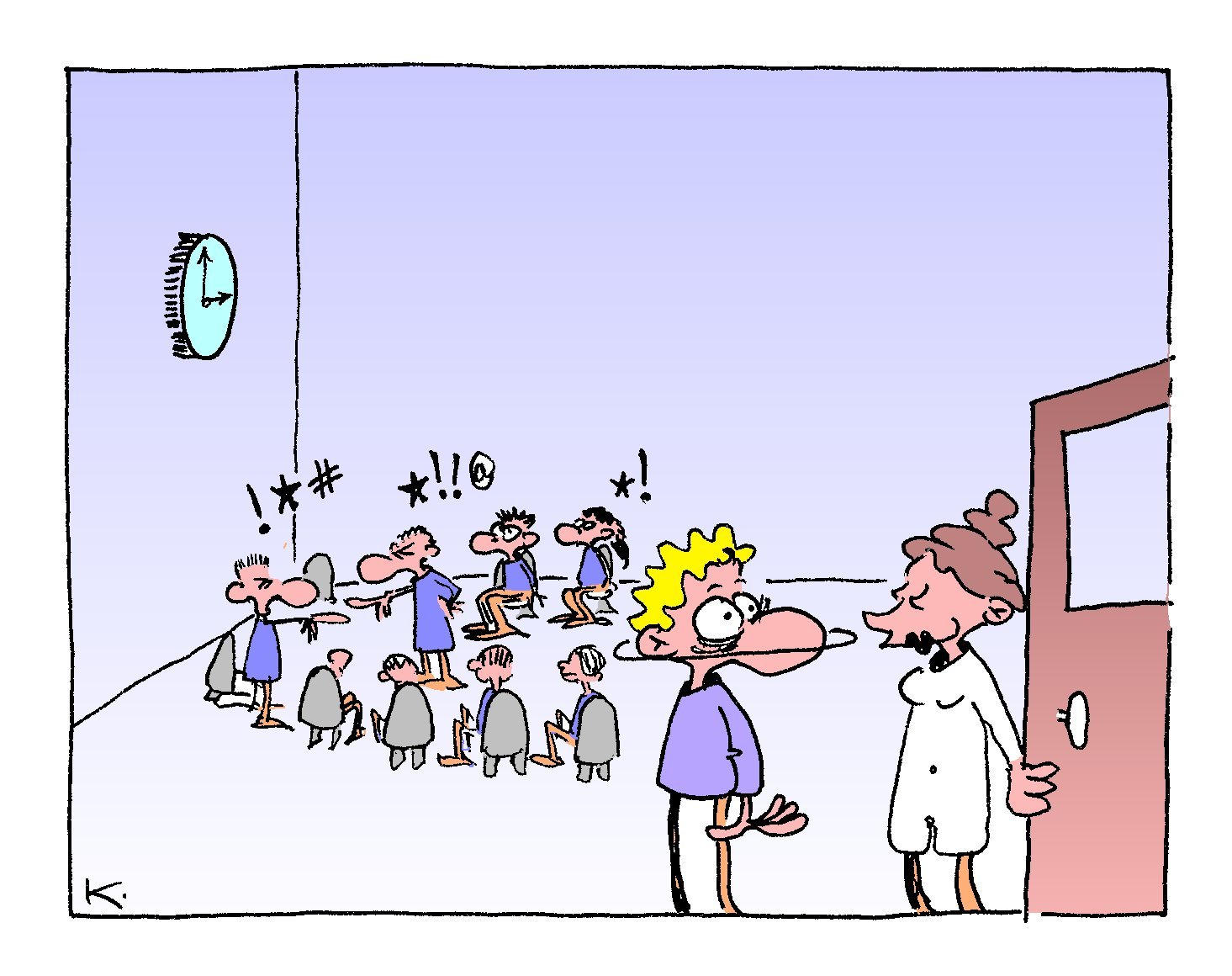
Handling Opposing Political Opinions At Work
In the twinkling of an eye, the Trump shall sound… and we shall be changed.”
-1 Corinthians 15:52
Let’s imagine a land far, far away, where there has just been an election. It has, to put it mildly, been both controversial and conflict-ridden. One candidate won, another lost, even that is questioned by some, each candidate has their strong supporters, and our mystery nation now seems quite divided. All politics being local, that means the workforce of the small company where you work is divided too.
Sarah in Sales shows up wearing a t-shirt for Candidate A. Suddenly Chuck in I.T. won’t work on her computer – ever again, he says. Meanwhile Larry the General Manager makes a joke about Candidate B at a meeting, someone quits, and two other people lodge a complaint with the CEO.
Wow, that happened fast, didn’t it?
It is not necessary for people to have the same politics in order to work well as a team. Russia and America defeated Germany together, and the armies shook hands when they met. A great political divide can be overcome by a common purpose that is bigger than the difference in ideology, but only when that common purpose is evident, believed, and acknowledged.
What is the common purpose of your work team?
A mundane common purpose like getting through the day, making money or not getting fired will never be sufficiently unifying to overcome political, personal and ethnic differences. That is exactly why it’s so dangerous to lower your sights, to become tired or cynical, and to settle for a mundane purpose and picture in the work you do. That’s how you create non-resilient teams that come apart under stress.
Look at a work team (in our imaginary country, far away) that has been riven by political differences and you will find a team that lacks purpose and vision. Banning political t-shirts, political jokes in meetings and anything else you think could cause trouble is not automatically a bad idea as long as you stay legal and within peoples’ civil rights, but don’t get too excited about that, because it’s no answer anyway. The workplace is far too non-linear for you to anticipate every possible symptom and stop-gap cure as things fall apart. Rather, you need a healthy and well-led workplace to begin with. Health means constant work, constant effort, denying yourself some short-term pleasures, and regular checkups.
The way to avoid political strife in a work team is to raise the level of operation. They need a vision and a mission so strong that even deep differences that will never go away are not also fault lines along which a team or an organization can crack. Your number one job as a leader – so far ahead of the others that there’s really no comparison – is to provide that vision, excitement and unity.
All very well, you say, but what happens now that Chuck has refused to work with Sarah and you just found out? First of all, understand that it’s too late now to really get a great outcome. The time to make an investment in your team’s unity and strategies for handling difference was long before that. All you can do now is find the one thing that Chuck and Sarah have in common, and work outward toward peace from there. Great leaders are always great at finding that “one thing”, and a good place to start is knowing your people really well. Here’s where it is of more than passing interest to know that Sarah and Chuck both coach Little League. How would they handle two kids in their team who can’t stand each other? Your job, incidentally, is to lead – not to know all the answers. In situations like this, know-it-all, ultimate-answer-dictating leaders usually make things worse.
And after you pick up the pieces, make an investment in your team TODAY before something really bad happens that could end your own career.
That distant trump you hear playing might be for you.


Engage us on Facebook
Follow us on Twitter
Tweets by @mymcmedia